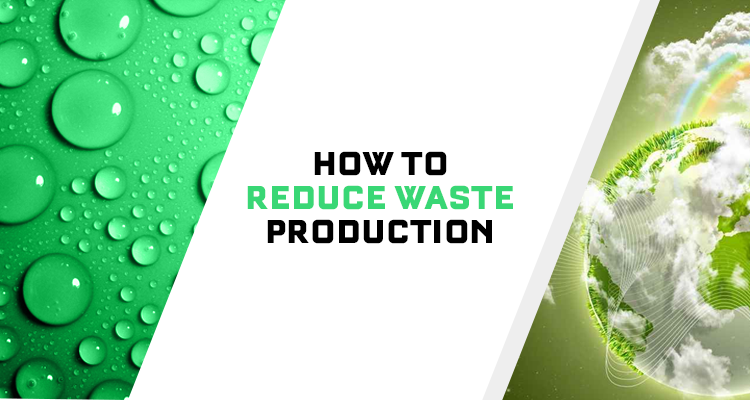Producing waste on a daily basis is as common as dirt. No matter what we do, it is an inevitable fact there will be some refuse produced, be it muck, dust, residue, litter, or any other of the many types of waste. Hence, learning how to reduce waste production in general may save you both time and money, and help preserve the environment.
Preparing vegetable home-made dinner implies vegetable peels, as well as many paper towels and plastic packaging that end up in a trash can. While some items are to be thrown away without the possibility to be reused, there are many more that can be upcycled. That is why we came up with a short list of most frequent waste reduction tips and tricks that are both easy to incorporate into your daily life and help you decrease the negative impact on the environment.
Tips on How to produce less waste
Recycle
Before you start observing things that way, it is actually quite hard to realize what are the goods that can be recycled. Many countries around the world are already well on the way, while others are just realizing the importance of recycling and are only starting to implement appropriate measures.
Hence, communal containers in public areas are now separated so that they enable easy and efficient waste sorting into paper, glass, PET, and organic waste. In some countries, such as the Netherlands, there are specific days during the week when certain type of waste is being collected by communal waste collectors, and residents are encouraged to help communal authorities in this task by sorting their waste.
Go for cloth bags for groceries
One of the ways to reduce waste production is gaining more popularity in recent years due to creativity possibilities in cloth bags design.
The advantages of using cloth bags instead of plastic bags are manifold. First, they are ecological, can be reused and are machine-washable if they get dirty. Secondly, they are more spacious than the traditional plastic bags and provide you with more room for your goods. Thirdly, cloth bags perfectly cover all your items as they are not transparent, hence nobody can see what you are carrying with you. Furthermore, cloth bags can be customised, hand-painted, and re-purposed, so if you need some extra room to carry your books, notes, groceries, or even your laptop or clothing items, cloth bags are fit for all (not necessarily at once, of course).
And one of the best things about them is they usually come for free, at events such as conferences or various kinds of trainings, so if somebody invested some effort for this cloth bag to come to you, you might just as well use it.
Buy less
Mathematics behind this is plain simple: the less you buy, the less will you waste.
It holds true in all areas of life. The less items you own, the more likely are you to pay special attention to using those you already have and the longer will they last, as you will take care of them better – treasure them in a sense.
Most clothing items can be worn season and season over. If you still want to be trendy while at the same time not owning so many items, try buying more classic models so that they allow various outfit combinations and emphasise the details with proper accessories.
Same goes for mobile phones and electronic devices. Yes, it is exciting buying new ones once they are out, but if your old phone still works, there is no real need for buying a new one just for the sake of buying it. Try saving that money instead – you would be surprised how much money can you save in a matter of months!
Reduce consumption
In line with buying less goods in general is the reduced food consumption suggestion.
Understandably, it is not a diet we are suggesting here, but rather planning your meals several days in advance thus buying only as many ingredients as required to prepare the meals. That way, not only will you stress out about food less than before, but also learn to save money and organise your daily life in a more efficient way.
Reuse plastic and glass packages
Many items we buy on a daily basis come in ready-made plastic packages that, in fact, can be reused at least once more. Food containers, various sorts of plastic plates or cans, are also fit for reuse or repurpose.
It is actually not just plastic packages but glass ones as well, such as bottles and jars. Bottles of different shapes can be reused as plant pots or vases, even painted on to bring more life to the plain glass or embellish it even more. Jars function quite well in a plethora of other usages, such as spice containers, pen holders, vases, plant pots, and many, many more.
Bring your own water bottle
It may come as a surpise since bottled water is relatively cheap, but buying it on a daily basis may turn out to be emptying your wallet more often than not.
That is why carrying your own water bottle with you is one means to reduce waste production. By buying less bottles of bottled water you help preserve the environment by decreasing plastic packages demand, while at the same time saving money.
Compost
Composting implies leaving organic leftovers to decompose and using them as fertilizers or soil amendments.
Composting is one of the reasons why municipal waste collectors have organic waste containers and encourage residents to use them appropriately. Once again, in the Netherlands, such containers are available in public areas and residents are allowed to fill them with organic waste such as grass or leaves that fall from the trees. Later on, the authorities use this compost as soil fertilizers.
Use less paper
Unfortunetely, more wild forests are being cut down each day to satisfy the world’s demand for paper. That is why reduction in paper usage is essential to break this enchanted circle.
Recycling newspapers and magazines, printing on both sides of paper sheets, opting out of all mailing lists (such as promotional mail and special offers which you never use), using cloth bags instead of paper groceries bags, replacing paper towels with huck or cloth towels, are all appropriate ways to help preserve the environment and decrease waste production.
Use the right waste container
The right-size waste container installed at the right place can make all the difference.
That is why it is so crucial discovering which metal container is fit for your household needs and making sure you have them in your yard, kitchen, or on the street.
Depending on the amount of waste you produce, there are various waste containers available, ranging from litter bins, skip containers, abroll containers, transfer stations, or cleaning trolleys. They are there to accommodate any individual or communal need for suitable waste management system, and were designed to complement any public space or rural or urban area.
There are many more possibilities on how to decrease waste production that are fairly easy to implement in everyday life. Have we forgot to mention something you do on a daily basis? Do you have any other suggestions? Please feel free to share your ideas with us on our social media pages: Facebook, Google+ and Linkedin – we look forward to hearing from you!


Recent Comments